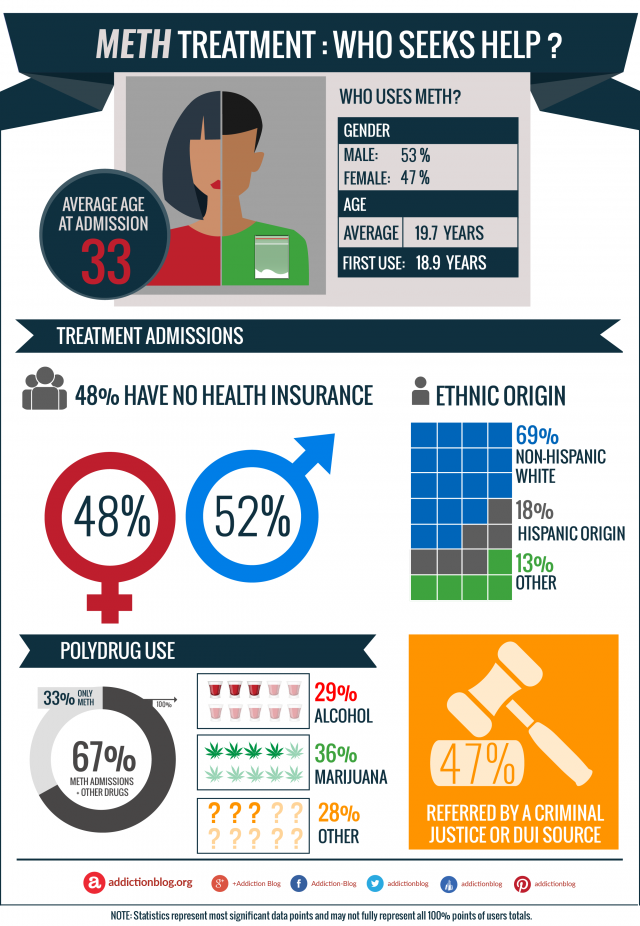Who gets treated for methamphetamine addiction in the U.S.?
According to the Treatment Episode Data Set (TEDS) nationwide treatment admissions for meth abuse have decreased from 8.1% in 2005 to 5.6% in 2011. The majority, or 53%, of primary methamphetamine admissions were male, and about two-thirds or 69% were non-Hispanic Whites (36% males and 33% females).
Methamphetamine addiction treatment admissions for both genders in all race/ethnicities peaked in the late 20s and early 30s; non-Hispanic White male admissions had a secondary peak in their mid-30s.

Meth addiction treatment admissions
Treatment for any substance abuse problem is crucial for longer term success. Especially if we take into consideration that addicts are not the only ones who pay the cost of meth addiction. Other expenses we all pay include:
- Crime and other crime-related costs (harm to victims, law enforcement, incarceration).
- Losses in productivity.
- Medical costs.
- Addicts as vectors for HIV and Hepatitis.
- The emotional costs to loved ones.
Primary methamphetamine admissions were more likely than all admissions combined to be referred to treatment by the criminal justice/DUI source. Primary meth admissions were more likely than all admissions combined to receive long-term rehabilitation / residential drug treatment.
Also, 67% percent of primary methamphetamine / amphetamine admissions reported secondary use of other substances, primarily marijuana – 36% and alcohol – 29%.
Meth addiction treatment questions
Do you have any additional questions? We welcome to post them in the designated section at the bottom of this page. We try to answer personally and promptly to all legitimate inquiries, or refer you to professionals who can help your particular issue.
Also, feel free to let us know if you like our infographic and then share it with someone who might be interested.








Related Posts